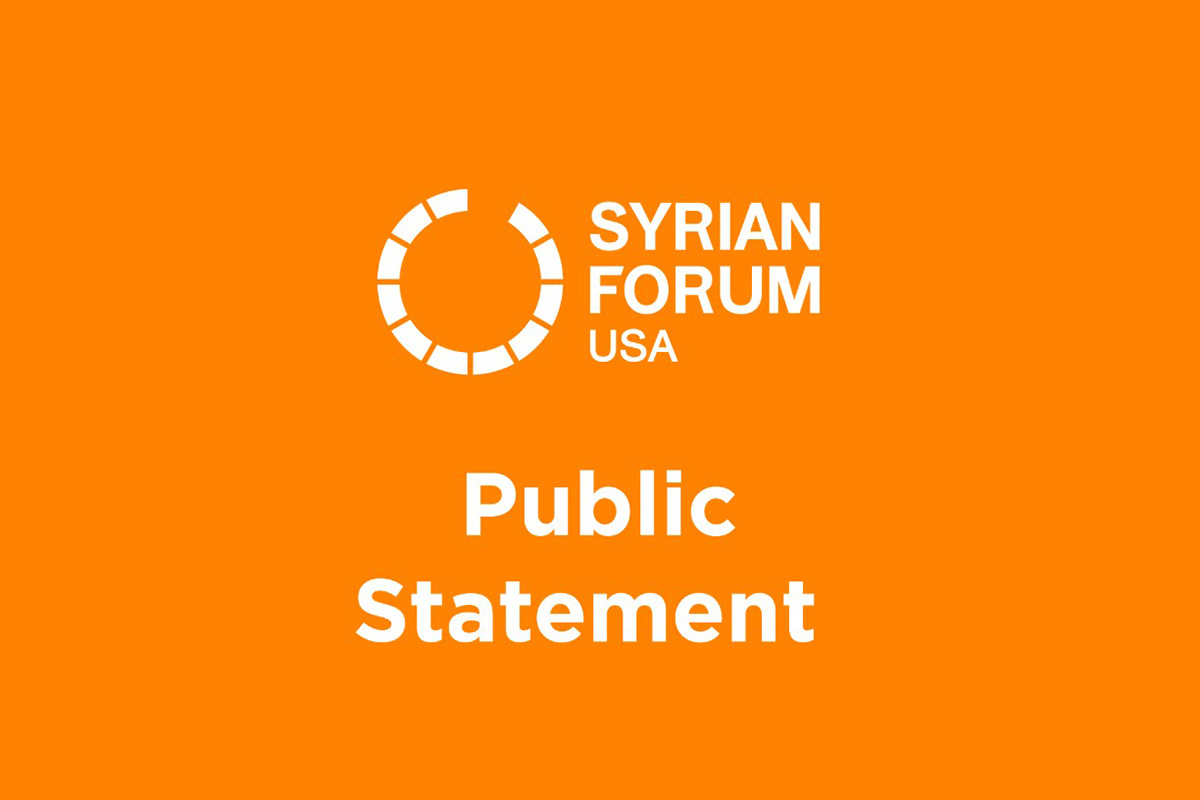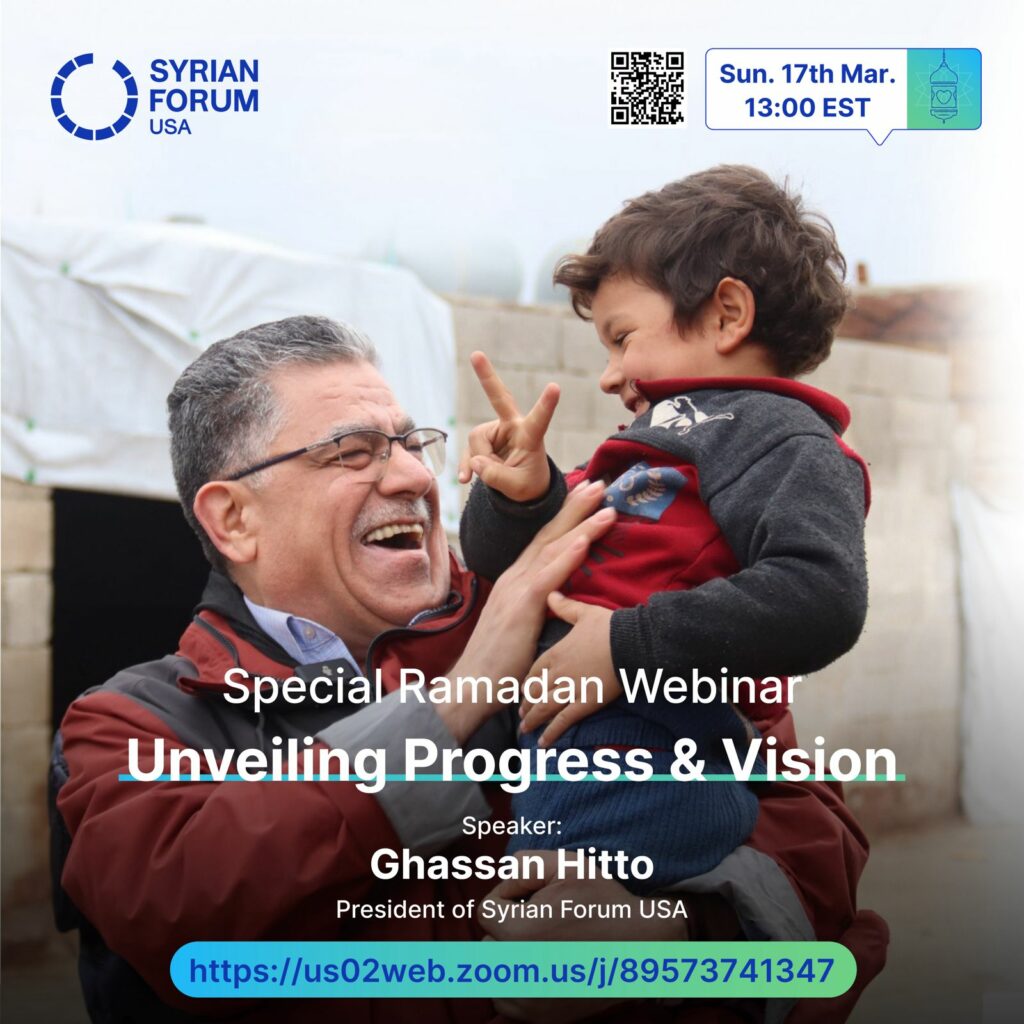By Karam Shaar
SUMMARY
- In 2020, the EU sanctioned Maher (Mahir) Burhan Eddine al-Imam for benefiting from and financing the Syrian regime. The Court of Justice of the European Union (CURIA) dismissed his appeal on 22 September 2021 and ordered him to pay the court cost. However, the EU decided to delist him last month without public justification.
- Although Maher has toned down his public support for the regime and pulled out of some formal business dealings, he continues to control key companies with links to the regime through his business affiliate and friend, Muhammad Ammar Dalloul. On 20 April 2022, Maher transferred his shares from Waves Internet Service in what appeared on paper to be the severing of his last connection to the regime-backed Telsa Group. However, he merely transferred the shares to Dalloul, with whom he remains in close contact. Maher’s public engagements continue to suggest that he is in charge of Waves Internet.
- The EU should not have delisted Maher al-Imam. Instead, Muhammad Dalloul should have been sanctioned due to ample evidence of his business connections to both Maher and Maher’s wife, Khadija Bekdash, and of his support to and benefit from the Assad regime. The delisting of Maher al-Imam is another failure of Western governments to adequately understand the intricate web of business-regime networks in Syria.
- Western governments, and the EU, should overhaul the way they arrive at their listing and delisting decisions to improve the efficacy of their unilateral sanctions, especially in light of their negative unintended impacts on innocent civilians.[1]
[1] This report is produced by the Syria Sanctions Policy Program (SSPP). The SSPP is a joint initiative of the Syrian Forum and the Observatory of Political and Economic Networks that works toward reforming Western sanctions on the Assad regime.
WHO IS MAHER AL-IMAM?
Maher Burhan Eddine al-Imam is a leading businessman with interests in Syria’s tourism, telecommunications, and real estate sectors. The EU sanctioned Maher on 17 February 2020 because “As General Manager of the regime‐backed Telsa Communication Group as well as of Castro LLC, and through his other business interests, Maher Burhan Eddin al‐Imam benefits from the Syrian regime and supports its financing and lobbying policy as well as its construction policy.”
Telsa Group is a conglomerate of businesses working in Syria’s telecommunications and reconstruction sectors. Four major companies form Telsa Group, and Maher had partial ownership in all four.[1] However, on Maher’s Facebook profile, a chart of entities comprising Telsa Group includes more companies—such as Telsa Telecom and Telsa Rebuild—which are not found in the Syrian Gazette, suggesting they are direct subsidiaries of Telsa Group.
The EU’s official sanctions website listed Maher as a Syrian national born on 22 August 1978, without stating his place of birth. However, while he is a Syrian national, he was born in Kuwait on 05 October 1976, according to the publicly available Syrian Gazette, when he registered one of his companies (Concurrence for Pledges and Contractors LLC) and his Facebook profile. This further highlights the EU’s inability to acquire accurately even the basic information about sanctions targets, such as the date and place of birth.
Maher’s family is originally from Damascus. They still have a residence there, although they have long been expatriates in Kuwait, according to sources interviewed for this report.
Our research in local and global business registers shows that between 2012 and April 2024[2] Maher was a partial or full owner of fourteen companies in Syria.[3] He also co-established two companies in Lebanon.[4]
[1] The four companies are: Concurrence Telecom LLC (Tazamun LLC), Concurrence for Pledges and Contractors LLC, Waves Internet Service LLC, and Concurrence for Trading and Building Materials.
[2] Maher al-Imam’s first economic activity in Syria can be traced back to November 2011, when he registered his company Masar LLC.
[3] Maher has been a partial or full owner of fourteen companies: Masar LLC, Waves Internet Service LLC, Concurrence (Tazamun) Telecom LLC, Concurrence for Pledges and Contractors LLC, Strategy LLC, Energy lines LLC, Like Syria LLC, On Line LLC, Castro LLC, Relife LLC, Ovaleo LLC, Telsa Group LLC, Telsa Mat LLC, and Concurrence for Trading and Building Materials.
[4] In Lebanon, the first company was registered in 2013 under the name SAIS SARL, and the second in 2015 under the name Top Projects Company SARL.
WHY WAS HE SANCTIONED?
Before sanctions, Maher was openly loyal to the Assad regime. He used his Facebook page and television interviews to express his staunch loyalty.
In addition to interviews on Syrian TV, there were photos of Maher with sanctioned Syrian state figures like Presidential Advisor Buthaina Shaaban, the Minister of Communications, the Minister of the Interior, and the Minister of Information.
In his statements, Maher quoted President Bashar al-Assad and offered him blessings and greetings on multiple occasions.
Maher’s Telsa Group worked closely with government institutions and exhibited sanctionable behaviors:
- Telsa Rebuild implemented[1] several projects and studies related to Marota City. Marota, a high-end real estate project in Damascus associated with the Syrian regime, and accused of forced displacement and property confiscation. The EU has sanctioned multiple institutions and individuals for their connections to the Marota City project.[2]
- Telsa Group worked on improving satellite, wired, and wireless communication services for areas “regained by the Syrian Army.” It also provided network coverage to the areas and communication services for Syrian army personnel.
- Telsa Group also provided studies for the e-government project in coordination with Syria’s Ministry of Communications. Four Telsa Group entities participated in the Syrian Exhibition for Information Technology (SyriaTech 2016) in Damascus, which was held under the patronage of the Minister of Communications and Technology.[3]
[1] Maher mentioned in his Facebook post that the implementation covered Regulatory Zone Number 101, one of three zones included in the Marota City project according to this official source.
[2] Sanctioned institutions due to their involvement in the Marota City project include Damascus Cham Holding Company, Muhammed Nazeer Jamal Eddin, and Mazin al-Tarazi.
[3] Four Telsa Group entities participated in the Syrian Exhibition for Information Technology (“SyriaTech 2016”) in Damascus: Concurrence Telecom LLC, Telsa Telecom LLC, Concurrence for Pledges and Contractors LLC, and Waves Internet Service LLC.
HAS MAHER AL-IMAM CHANGED HIS BEHAVIOR?
After 2017, in what seemed like an attempt to avoid being sanctioned, Maher did not personally participate in television interviews or show public support for the regime on his social media. This behavior continued after his sanctioning in 2020, which probably helped him make a case for being delisted. In fact, after exactly two months of being sanctioned, Maher appealed to The Court of Justice of the European Union (CURIA) on 18 April 2020, seeking an annulment of the decision. Along with his request for priority treatment and for his identification details to be anonymized, Maher demanded compensation from the Council of the European Union in three parts:
- EUR 10,000 for the material loss suffered.
- EUR 15,000 per week from 18 February 2020 (the date sanctions went into effect) for the non-material loss suffered due to the restrictive measures.
- An order for CURIA to compensate him for any future loss that he suffers as a result of the adoption of the restrictive measures taken against him.
On 22 September 2021, the case was dismissed, and Maher was ordered to pay the court cost.
Unfortunately, the public case report published by the court states that “only the paragraphs of the present judgment which the Court considers it appropriate to publish are reproduced here.” The report lacks any argument or discussion related to the role Maher plays in the political economy of Syria. The published arguments covered only Maher’s appeal that “the time limit for the submission of an application for review and for observations was too short, and thus did not allow him to be heard in a meaningful and effective way.” Even if he submitted evidence exonerating him, CURIA’s reviews are conducted annually “rather than being analysed immediately.”
His Facebook posts since then focus on social events like birthday parties and weddings, as well as important moments in his life like traveling for Umrah, undergoing surgery, and his father’s death.
However, his companies have continued to promote the regime, even as recently as 2021.

A post on the Facebook page of Telsa Rebuild—a subsidiary of Telsa Group—on 26 May 2021, expressing support for Syrian President Bashar al-Assad.
HOW TO DODGE SANCTIONS
To make his case for being delisted, Maher withdrew formally from multiple prominent companies in Syria, including those involved in government-related projects. He dissolved four of his fourteen Syria-based companies and relinquished his shares in four others, according to our review of official documents.[1]
Maher’s shares in Concurrence Telecom (Telsa Telecom) and Concurrence for Pledges and Contractors went to a little-known businessperson known as “Rawan Abdel Rahman Al-Asbahi,” who might be acting as an informal nominee shareholder to conceal Maher’s ownership. The third company forming Telsa Group, Concurrence for Trading and Building Materials, was dissolved.
However, in spite of having no formal relationship with Telsa Telecom since 2020, Maher’s public engagements suggest he continues to play a prominent role in it as of 27 April 2023 and 20 September 2023.
[1] Maher dissolved Castro LLC, Concurrence for Trading and Building Materials, Energy Lines LLC, and Masar LLC. By dissolving Energy Lines, Maher effectively severed his only formal connection to Mudar Tawfiq Younis. Younis is known for introducing what he called the “Syrian Financial Army,” which aimed to save the Syrian lira (pound) from depreciation in 2019. The “army” included numerous regime cronies, and Maher participated in several Facebook post discussions as part of the campaign “Let’s support our Lira.” Younis has also been accused of involvement in the narcotics trade in Syria. A huge stash of captagon was reportedly found in his car in 2018, although he managed to avoid conviction through his father’s (Major General Tawfiq Younis) connections. Maher relinquished his shares in Syria LLC, Concurrence Telecom LLC, Concurrence for Pledges and Contractors LLC, and Waves Internet Service, LLC. The lack of evidence of his exit from Strategy LLC, Ovaleo LLC, and Relife LLC are not of particular concern. These companies are not owned by regime affiliates or by any currently-sanctioned individuals or entities.

Maher al-Imam (far left) and Muhammad Ammar Dalloul (far right) pose for a photo at a Telsa Telecom event. Dalloul, discussed below, posted the image on his Facebook page on 27 April 2023.
In April 2022, Maher transferred his shares from Waves Internet Service, severing his last connection to the regime-backed Telsa Group—or at least it appeared so on paper. However, the shares went to his business partner and close friend Muhammad Ammar Dalloul, who has extensive connections to the Assad regime.

A document from the Syrian Ministry of Finance documenting Maher al-Imam’s transfer of 500 shares from Waves Internet Service to Muhammad Dalloul, dated 20 April 2022.
In spite of Maher having no formal connection to Telsa on paper, on 10 August 2023 Dalloul referred to Maher al-Imam and others in a Facebook post marking the seventh anniversary of the company.
On 8 March 2022 Dalloul also shared photos of the Telsa Group office, which has a special corner for images of Dalloul and Maher al-Imam together.

Muhammad Dalloul also shared a photo of himself and Maher at a cafe on 02 April 2024. Dalloul used the photo as his Facebook cover image, suggesting their close relationship.

A photo of Muhammad Ammar Dalloul (left) and Maher al-Imam (right), which Dalloul posted on Facebook on 02 April 2024 and uses as his Facebook cover image.
Dalloul still co-owns Mercato for Electronic Marketing LLC with Maher’s wife, Khadija Bekdash. The company was registered in Syria in 2022.
THE CASE FOR SANCTIONING MUHAMMAD DALLOUL
Muhammad Ammar Muhammad Mu’taz Dalloul is Vice Chairman of the Board and a founding partner and treasurer of the Syrian–Iranian Joint Chamber of Commerce, which is intimately connected to the Iranian and Syrian governments. The Iranian President attended one of its meetings, during which Dalloul briefed the media on its activities.
Dalloul is known for his staunch loyalty to President Bashar al-Assad. He has posted photos on his Facebook account showing him casting a ballot for Assad with the caption “You’re the hope, Bashar Hafez al-Assad.” Dalloul has also posted many photos with members of the Syrian Army and frequently congratulates ministers and public officials on their new governmental roles.

In a photo posted to Dalloul’s Facebook page on 07 February 2023 he (right) poses with a member of the Syrian army.
CONCLUSION
Maher al-Imam should not have been delisted from sanctions because of his strong connections to Dalloul, who seems to be serving as a front for him.
Although Maher has toned down his public displays of support for the regime, he is still embedded in the web of regime-backed-and-benefiting individuals and organizations.
It is critical to understand the intricate web the Assad regime has created to evade sanctions and benefit the ruling elite. A mere declaration on paper is far from substantial evidence to prove one’s severance of ties with regime-backed institutions in Syria—as Maher al-Imam’s case shows.
On paper, official ownership or shares can be transferred from one regime backer to another, allowing both to benefit and remain active while hiding behind the extensive interlinkages of regime cronies.
A better step toward accountability in Syria would have been to not only keep al-Imam on the sanctions list but to add his friend and business partner, Muhammad Dalloul, as well.








